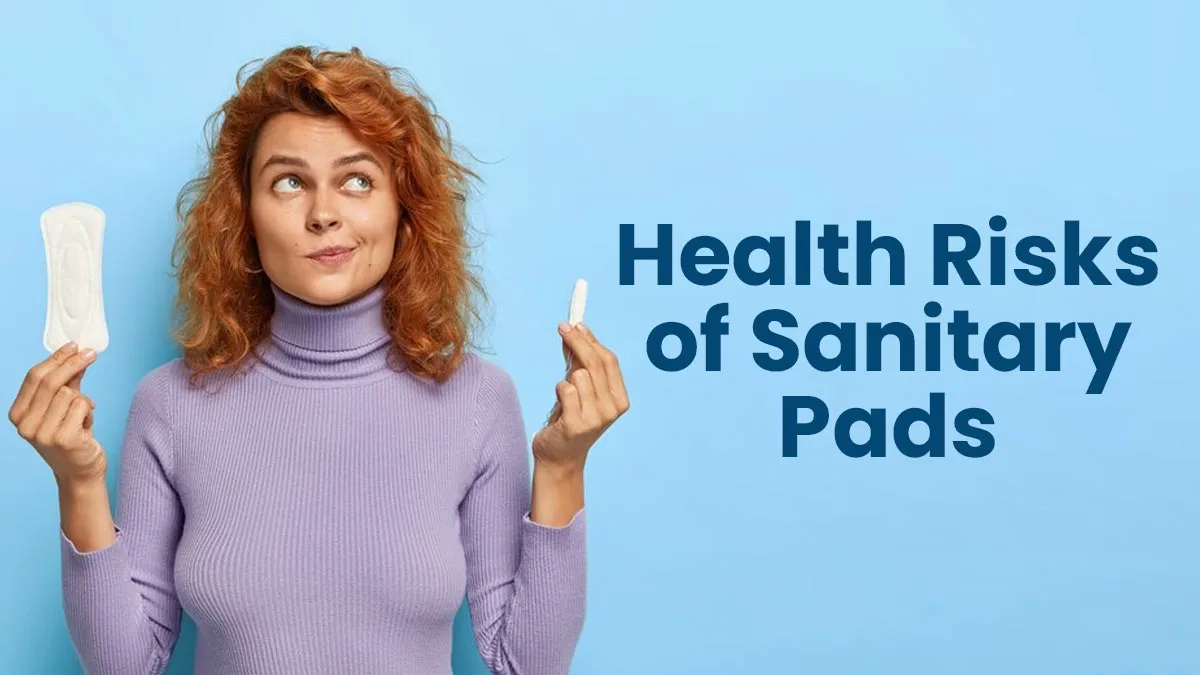
Sanitary pads are a staple for menstrual hygiene, used by millions of women around the world. While they provide convenience and comfort during menstruation, growing evidence suggests that these products may come with hidden dangers. Recent studies have raised concerns about the presence of harmful chemicals in many sanitary pads, linking them to reproductive issues and even cancer.
Table of Content:-
Detailing the same, an expert shared health risks linked to sanitary pads, the harmful chemicals often found in them, and how these substances may affect the body. The expert also shared viable alternatives that prioritise both health and environmental sustainability, empowering women to make informed choices about their menstrual hygiene practices.
Sanitary Pads Health Risks
View this post on Instagram
Dr Shivani Nesargi, Medical Doctor, Sanjeevini Hospital, Raichur, explained how she found about the studies related to harmful chemicals such as volatile organic compounds, phthalates and many more. “They are broadly termed as endocrine disruptor chemicals being used in the sanitary pads linked to hormonal imbalance, reproductive issues and even cancer,” she said.
Even according to a study published on PubMed, sanitary pads contain organic solvents and other chemicals that pose risks to women's health, particularly regarding reproductive functions.
Another study published in Environmental Health Perspectives in 2020 highlighted the presence of volatile organic compounds (VOCs), phthalates, and other harmful chemicals in various menstrual hygiene products, including sanitary pads. These chemicals are often used in the manufacturing process to enhance absorbency, fragrance, or durability. However, their potential health effects have sparked alarm among researchers and healthcare professionals.
The expert explained that “what bothers me more is the vaginal mucosa is highly permeable. It means that it allows all these chemicals to be absorbed into the body very quickly.” On average a woman spends five years of her life exposed to these harmful substances just by using these regular pads. That's a significant amount of time.
ALSO READ: What Are Uncomfortable Symptoms Of Menopause? Doctor Shares Management Tips
Alternatives To Regular Pads
The expert expressed concern over the lack of stringent regulations governing the composition of sanitary products. However, there are no specific standards for monitoring the presence of harmful chemicals in these products sold in India. Given the potential risks associated with traditional sanitary pads, Dr Nesargi recommended considering alternative menstrual hygiene products:
- Organic cotton pads: “Gentle on your skin, and shocker, the planet too,” explained the expert.
- Menstrual cups: Sustainable, comfortable, and lasting way longer than disposable. The expert explained it is not ideal for every woman.
- Reusable cloth pads: Dr Nesargi shared that ‘zero waste’ is a vibe.
- Tampons: While they also come with risks, using organic cotton tampons may be a safer option compared to conventional ones.
Additional Safety Tips:
To reduce the risks associated with using sanitary pads, consider the following safety tips:
- Change Pads Frequently: This helps minimise exposure to harmful substances.
- Avoid Scented Products: Scented pads may contain additional harmful chemicals.
- Maintain Good Hygiene: Proper hygiene practices can lower the risk of infections.
ALSO READ: Travelling with Baby: Essential Tips for Successful Breastfeeding on the Go
Conclusion
The findings about the chemicals in sanitary pads highlight a significant public health concern. As more people become aware of the potential risks linked to these popular products, consumers need to make informed choices about their menstrual hygiene. By exploring safer alternatives, women can reduce health risks and promote better reproductive health.
Also watch this video
How we keep this article up to date:
We work with experts and keep a close eye on the latest in health and wellness. Whenever there is a new research or helpful information, we update our articles with accurate and useful advice.
Current Version
